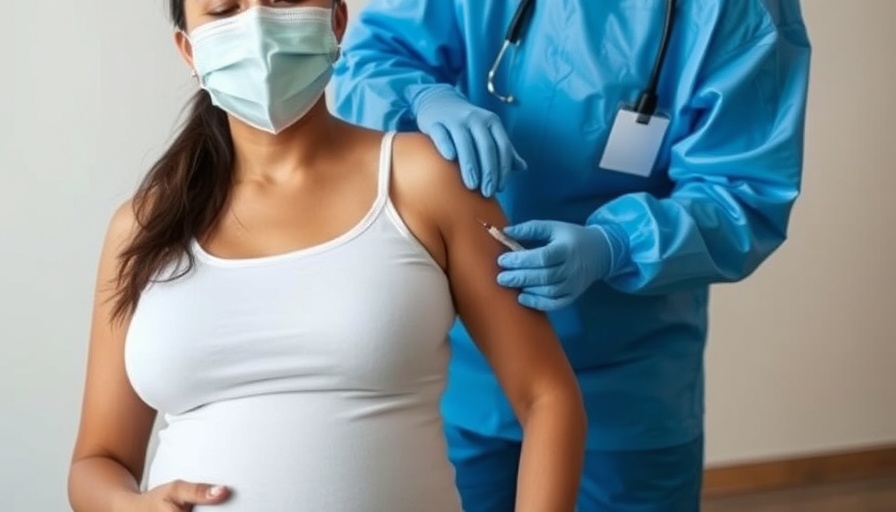
Do Pregnant Women Really Need COVID Boosters?
The question of whether pregnant women should receive COVID boosters is met with mixed messages. On one side, Health and Human Services Secretary Robert F. Kennedy Jr. suggests that healthy pregnant women do not require the vaccine; however, health authorities such as the Centers for Disease Control and Prevention (CDC) categorize this group as high-risk, indicating they should be vaccinated. So, what does the science say?
Understanding the Risks: A View from Health Experts
A meta-analysis, which combined data from 435 studies, revealed alarming findings—pregnant women infected with COVID-19 were significantly more likely to experience severe illness than their non-pregnant peers. It was found that they were more likely to require intensive care, invasive ventilation, or even succumb to the disease. Neil Silverman, a prominent professor specializing in obstetrics at UCLA, echoes these concerns, stating that the risks continue to evolve but remain significant as new COVID variants emerge. "No matter what politics say, the science is the science," Silverman emphasizes.
The Complex Physiology of Pregnancy and Immunity
The immune system undergoes significant changes during pregnancy, which can make women more susceptible to infections. According to virologist Angela Rasmussen, this natural immunosuppression is necessary for the body to protect the developing fetus but compromises the mother's defenses against infections, including COVID. The changed immune landscape can mean more complications and a tougher fight against viral infections.
Blood Clots and COVID: A Risky Combination
Pregnant women already face a heightened risk of blood clots, which becomes even more concerning in the context of a COVID infection. Sallie Permar, chair of pediatrics at Weill Cornell Medicine, notes that COVID can specifically impact the vascular system, particularly the endothelium that lines blood vessels. Therefore, the dual risks of pregnancy and COVID necessitate careful consideration of vaccination.
Navigating Confusion in Health Recommendations
The ongoing discussion around COVID vaccination for pregnant women has been muddy due to conflicting viewpoints. While political commentary often influences public perception, the medical community largely maintains that vaccination can prevent severe outcomes. It's crucial for expecting mothers to rely on scientific guidance rather than political rhetoric.
Future Predictions and Insights: The Vaccination Landscape
As research on COVID and pregnancy continues to advance, the potential for new and emerging variants makes the discussion of boosters all the more urgent. Experts anticipate that understanding the full implications of COVID vaccinations in pregnancy will lead to refined guidance, aligning with the ongoing evaluation of maternal and fetal health.
Empowering Decision Making Through Knowledge
For pregnant women, making informed decisions about vaccinations can be challenging amid a flood of information. Consultation with healthcare providers, reference to reliable studies, and attentiveness to recommendations from health agencies are imperative to navigate these complex waters.
If you’re a pregnant woman or know someone who is, it’s time to delve into the science and know that the choice of vaccination should be informed by compelling evidence and expert consultation!
 Add Row
Add Row  Add
Add 




 Add Row
Add Row  Add
Add 

Write A Comment